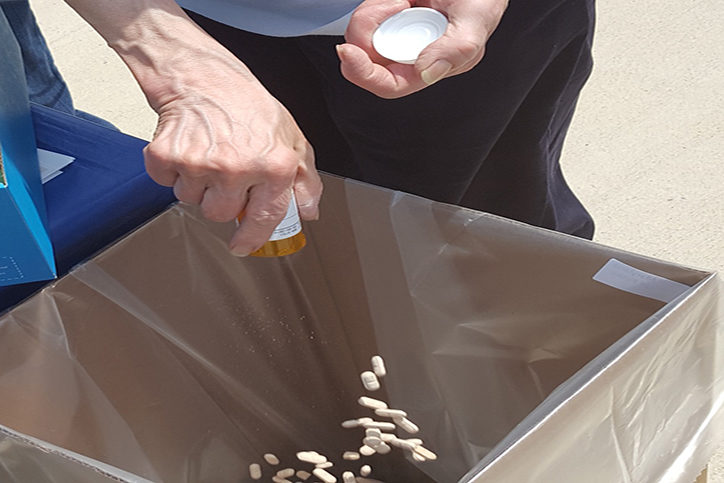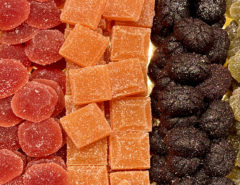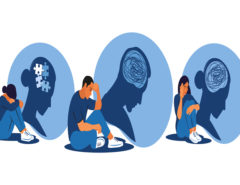Keeping unused or expired medicines in your home is dangerous. If your doctor tells you to stop taking a medicine, promptly dispose of it to help prevent a medicine error. Make it a habit to regularly dispose of unused and expired medicines, as they can put children, teens, adults, older adults, and pets at risk. Having extra medicines in the home increases the chance that children will find and get into them. Teens and adults who live in or visit your home may search your cabinet for medicine and misuse it. Older adults may confuse medicine bottles and take a medicine they aren’t supposed to or that belongs to someone else. Some pets take medicines, too, so be sure to dispose of those unused and expired medicines to prevent any exposures to both pets and humans. That’s right, some humans accidentally take the pets medicines, and vice versa.
Now, let’s take a look at four ways to safely dispose of the unused or expired medicines you find in your home.
National Take Back Days
The Drug Enforcement Agency (DEA) typically offers two Take Back Days each year. These days usually occur in April and October. This year, Take Back Day is Saturday, Oct. 24. Due to the coronavirus pandemic, there may be a limited number of collection sites available near your home. To find a collection site near you, or to learn more about National Take Back Day, visit the Take Back Day website. In October 2019, the 103 take-back locations in Maryland collected more than 12,000 pounds of medicine. Both prescriptions and over-the-counter medicines can be disposed of at these collection sites. IV and injectable medicines are not accepted. Needles, syringes and EpiPens also are not accepted. Use this tool to find a safe needle disposal location near you.
Permanent Drop-Off
Permanent drop-off locations are available around the state. Most of these locations are inside of police stations, and many sites are available 24 hours a day and seven days a week. A map and list of permanent drop-off locations is available here. Some pharmacies and health care offices also have collection boxes. Google Maps has a feature you can use to search for “medicine disposal site near me.”
FDA Flush List
We often get questions about flushing medicines. We suggest people review the FDA’s flush list to see which medicines should be flushed. Medicines that are on the flush list include controlled substances that some people may seek out or can be dangerous if someone, especially a child or pet, took just one. Flushing these medicines keeps everyone safe.
Safe Home Disposal
An easy way to safely dispose of medicines is to do so at home. You can discard most medicines that aren’t on the FDA’s flush list in the household trash. Follow these steps to safely dispose of medicines in the trash at home:
- Don’t crush medicines; leave them whole.
- Mix the medicines with dirt, kitty litter, or coffee grounds. This helps prevent people from possibly getting into the medicines in the trash.
- Put the mixture into a sealed container or plastic bag.
- Throw the sealed mixture in your household trash.
- Scratch out all personal information from the medicine label. This includes your name, address, phone number, and more. Then, throw the bottle or package away.
Download a one-page sheet with these instructions here.
As always, if you suspect that you or someone you know has gotten into a medicine, contact the MPC right away at 1-800-222-1222. Poison experts are available 24 hours a day, 7 days a week to help. The call is fast, free, and confidential.





Leave a Reply